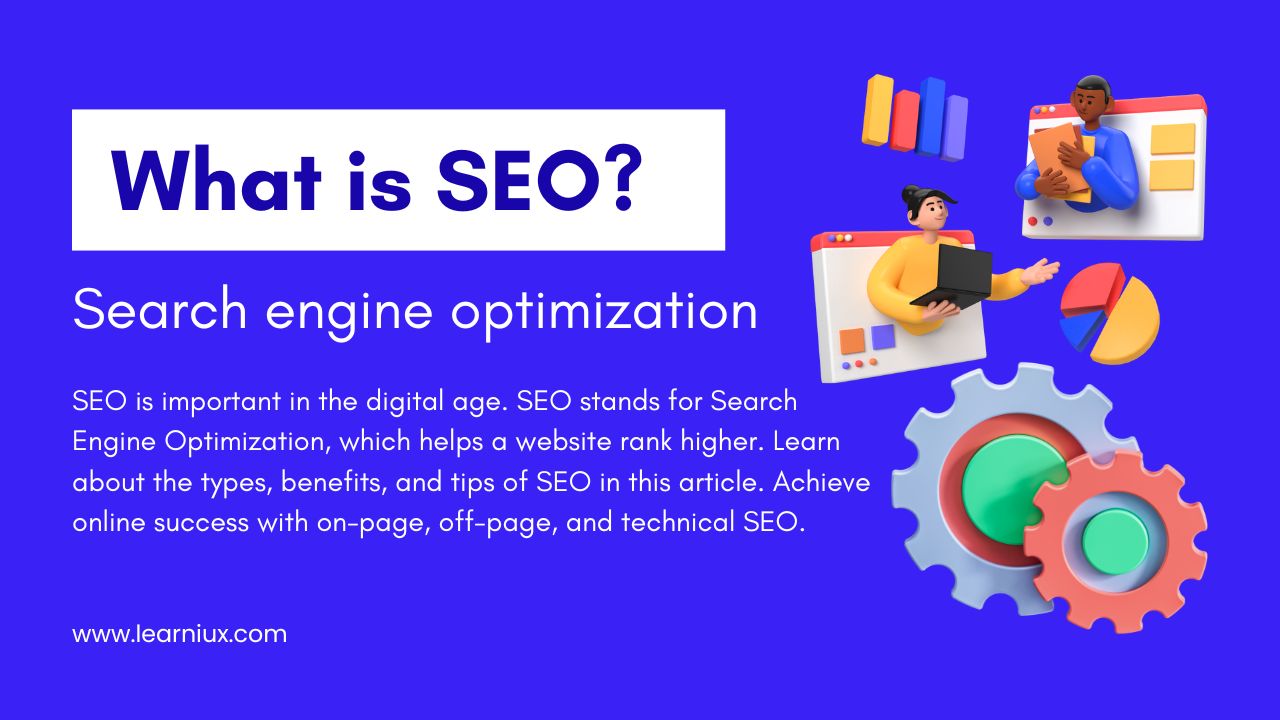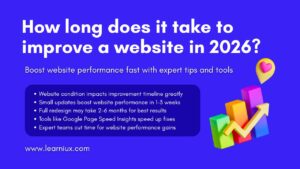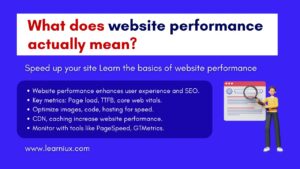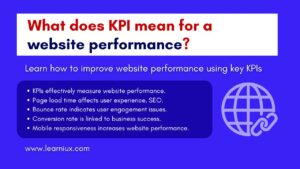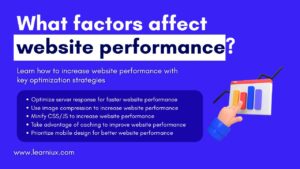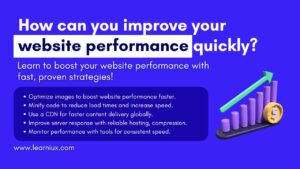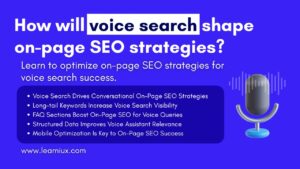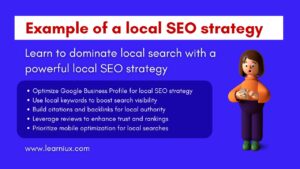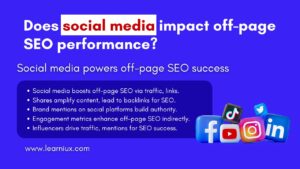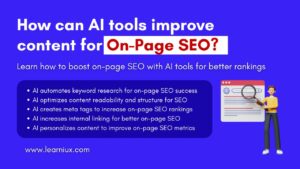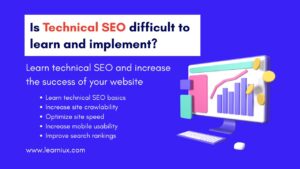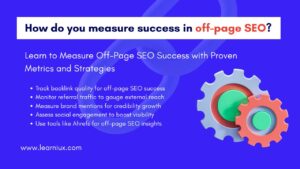Introduction
In the digital age, an online presence has become the key to success. Whether you run a small business, write a blog, or provide an online service, it is extremely important for your website to appear on the first page of search engines. Search Engine Optimization (SEO) is an effective tool for this. But what exactly is SEO? How does it work? And what are its benefits? In this article, we will delve into all aspects of SEO in detail, giving you clear guidance on how to rank your website high in search engines and succeed online.
SEO is a constantly evolving field, and using its latest trends and techniques is essential for your digital strategy. In this article, we will delve into the basics of SEO, its types, its benefits, and how to implement it effectively. This article is especially useful for beginners and advanced users who want to improve their website’s rankings.
Meaning of SEO and its importance
SEO stands for Search Engine Optimization, which is the process of optimizing your website or online content to rank high in search engines such as Google, Bing, Yahoo. Search engines are the primary means of finding information on the Internet, and therefore, having your website appear high in search results is crucial to the success of your business.


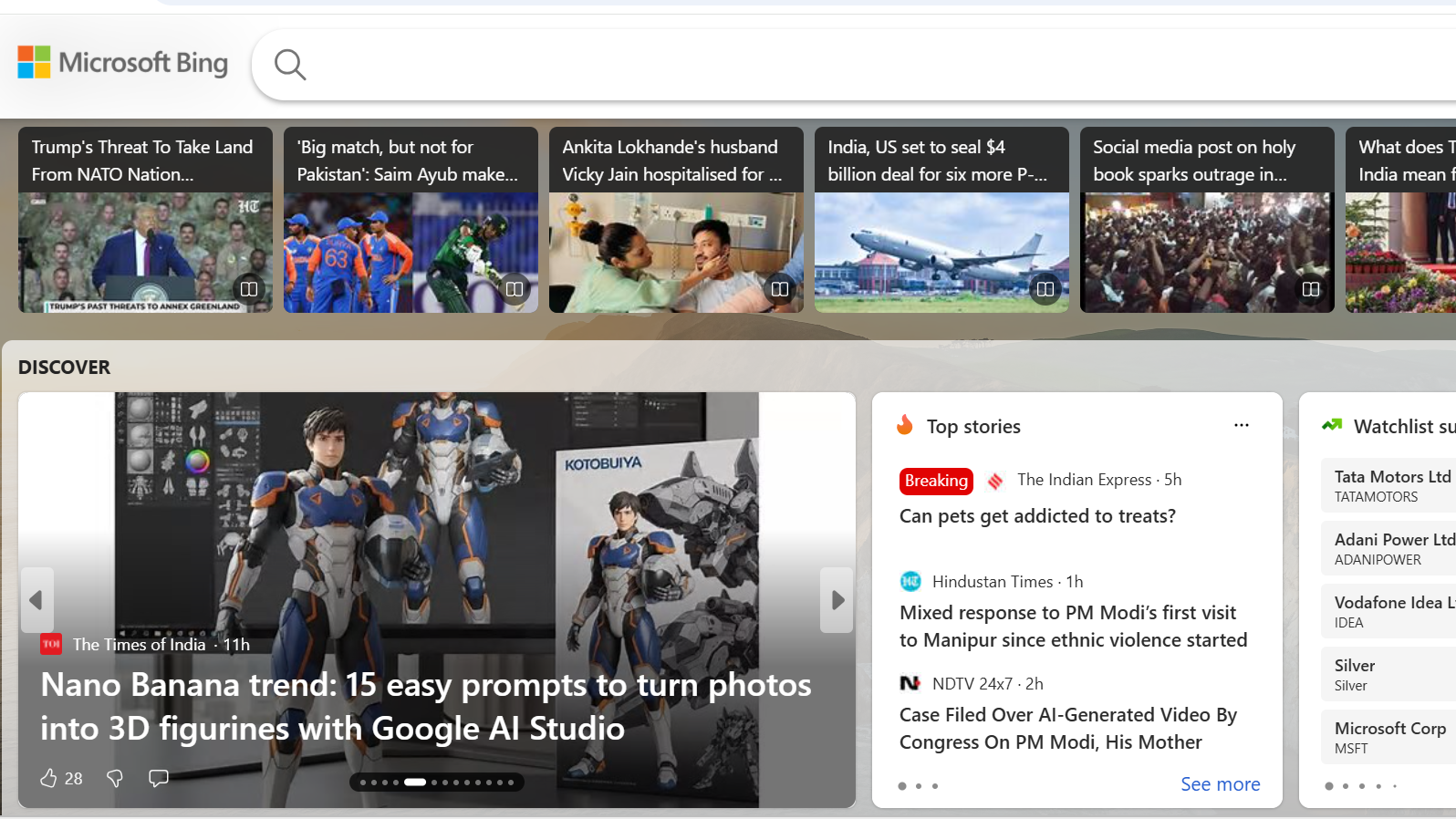
The process of SEO involves the content, technical structure, and external credibility of your website, which makes search engines prioritize your site. For example, if you are writing a blog based on the keyword “Marathi Recipe” and you use SEO correctly, your blog is more likely to appear on the first page of Google. This gets more visitors to your website, which is helpful for the growth of your business.
Why SEO is important
Search engines are the main tool for finding information today. Every day, billions of people search for various things on Google, be it products, services, information or entertainment. Websites that appear on the first page of search engines receive the most clicks. According to research, the first three links in the search results receive more than 50% of the total clicks. Therefore, if your website is not on the first page, you can lose potential customers or readers.
Using SEO, you can make your website search engine friendly, which will bring more organic traffic to your site. Organic traffic is the visitors who come to your website without advertising. This increases the visibility of your business, improves brand credibility and leads to long-term success.
Business Benefits of SEO
Using SEO provides businesses with many benefits:
- More Traffic More people visit your site as your website appears higher in search results.
- Customer Trust Higher rankings make your brand appear more trustworthy and professional.
- SEO is a long-term and low-cost option compared to cost-effective marketing advertising.
- Competitive Advantage With the right SEO strategy, you can stay ahead of your competitors.
- Targeted Audience SEO helps you reach your specific audience, who are interested in your product or service.
Types of SEO
The three major types of SEO are on-page SEO, off-page SEO, and technical SEO. Each type works in a different way to improve a website’s ranking. Let’s take a closer look at these types.
On Page SEO
On Page SEO is about optimizing the content and technical aspects of your website. It includes every element on your webpage, over which you have complete control. Some of the key aspects of On Page SEO are as follows:
- Keyword Research and Usage Understanding your audience’s search terms and using keywords accordingly. For example, if you run a Marathi recipe blog, using the keyword “Marathi Pav Bhaji Recipe” would be useful.
- High Quality Content Your content should be informative, useful and engaging for your audience. Search engines prefer content that provides value to users.
- Meta Tags and Descriptions Optimizing the meta title and meta description for each webpage, so that search engines and users understand the nature of your content.
- URL Structure Your webpage’s URL should be simple, easy to understand and keyword-rich. For example, www.example.com/marathi-recipe is an optimized URL.
- Image optimization is optimizing the images on your website with proper Alt text and a low file size, which improves website speed.
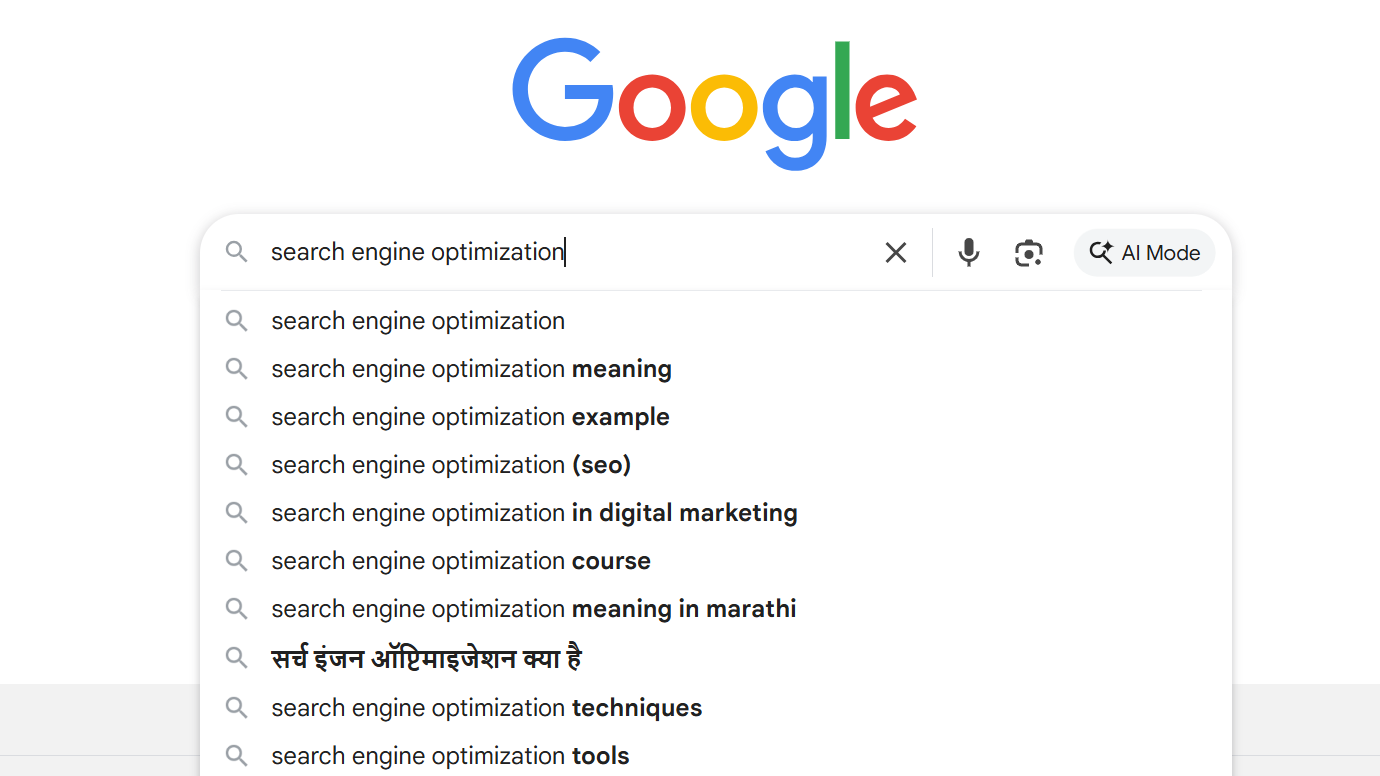
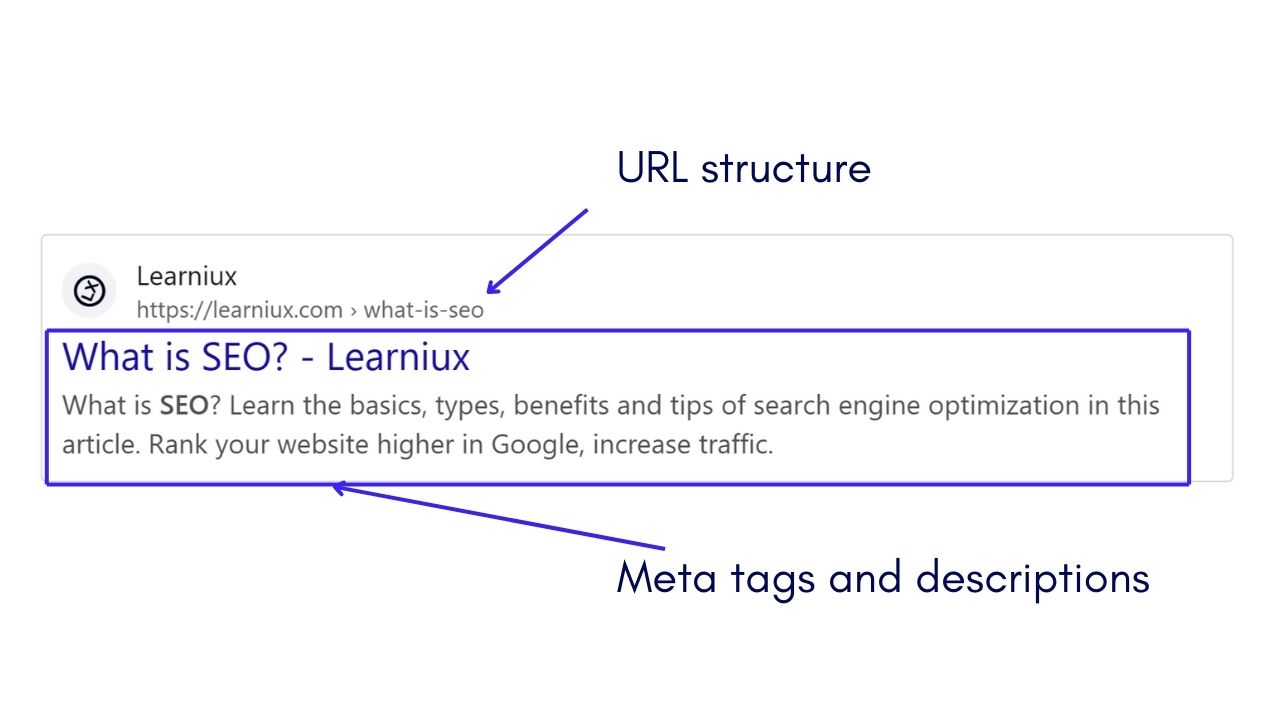
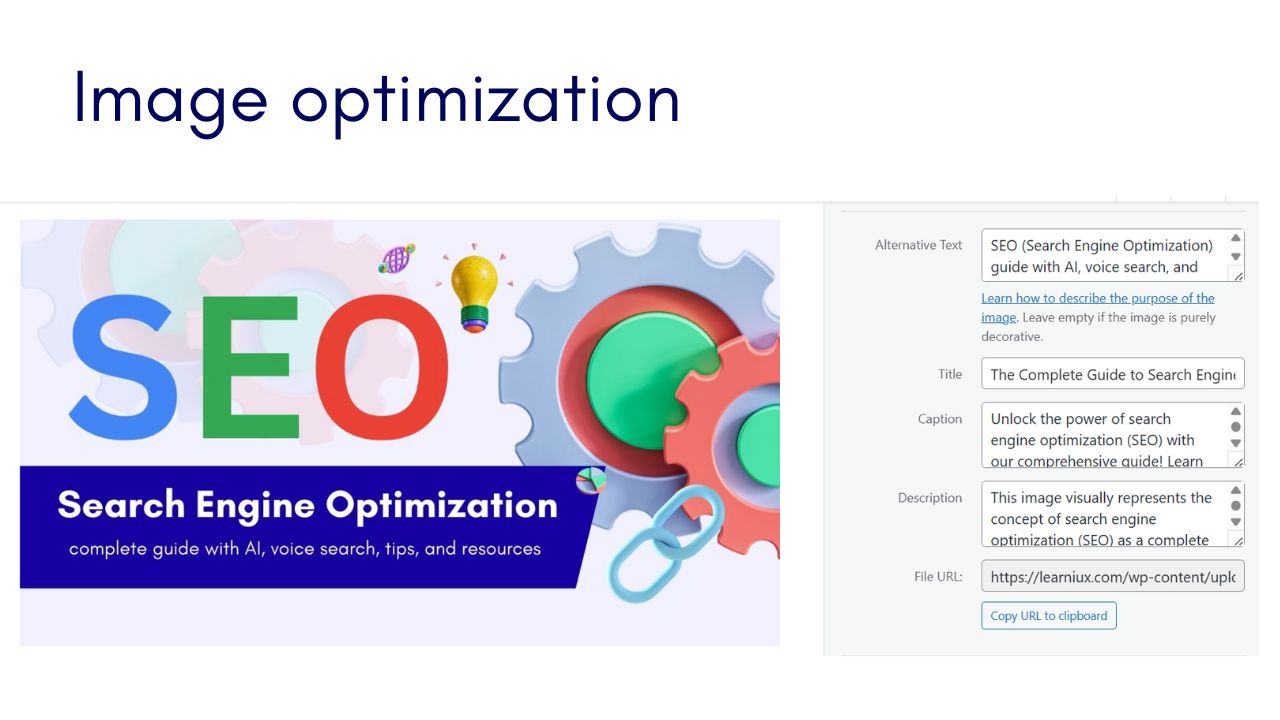
Tips for On-Page SEO
- Use keywords naturally, which will make the content attractive to readers.
- Target a single primary keyword on each page.
- Give your content useful subheadings (H2, H3), which will make it easier for both readers and search engines to understand the content.
- Use compelling calls-to-action (CTAs), such as “Subscribe to our blog now!”
Off Page SEO
Off Page SEO involves things outside your website that affect the credibility and popularity of your website. This determines how trustworthy search engines consider your site. Some of the key aspects of Off Page SEO are as follows:
- Backlinks Links to your site from high-quality and trustworthy websites. For example, if a popular news website links to your blog, it increases the credibility of your site.
- Social Media Marketing Sharing your content on social media platforms like Facebook, Twitter, Instagram, which helps more people reach your website.
- Guest Blogging Writing articles related to your field on other websites and including a link to your website in them.
- Online Reviews Getting positive reviews about your business, which makes your brand trustworthy.

Tips for Off Page SEO
- Write guest posts to get backlinks from high-quality websites.
- Share your content regularly on social media and interact with your audience.
- Encourage customers to leave reviews on your business’s Google My Business profile.
- Avoid backlinks from spammy or low-quality websites, as this can negatively impact your rankings.
Technical SEO
Technical SEO involves the technical aspects of a website, which help search engines crawl and index your website. Some of the key aspects of technical SEO are as follows:
- Website speed Your website needs to load fast, as slow websites can lead to poor user experience and affect rankings.
- Mobile-friendly design Make sure your website works well on mobile devices, as most searches these days are done from mobile.
- Sitemap and robots.txt Sitemaps help search engines understand the structure of your website, while robots.txt tells search engines which pages to crawl and which not to.
- Secure HTTPS Connection Make sure your website runs on the HTTPS protocol, which keeps users’ data safe.

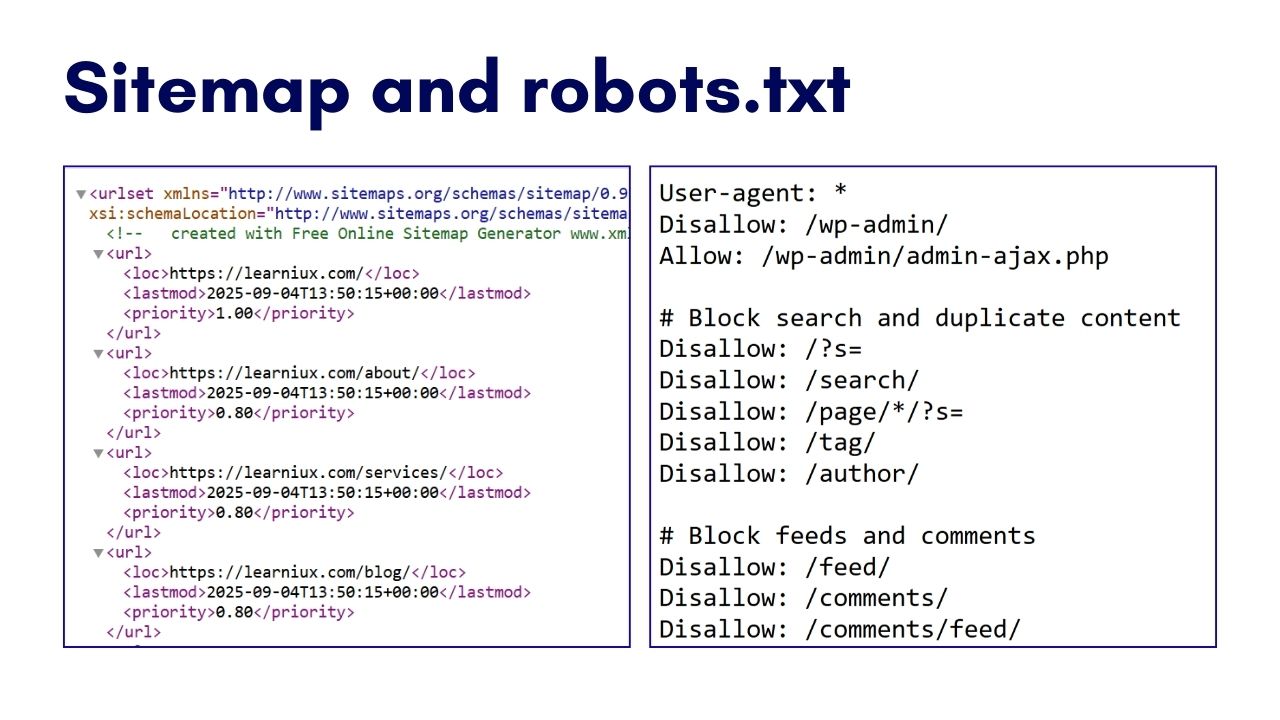

Tips for Technical SEO
- Analyze your website’s technical issues using Google Search Console and Bing Webmaster Tools.
- Compress images and avoid unnecessary scripts to improve website speed.
- Use Google’s Mobile-Friendly Test Tool to check your website’s mobile optimization.
- Regularly update your website’s sitemap and submit it to search engines.
Benefits of SEO
Proper use of SEO provides your website and business with many benefits. Some of the major benefits are as follows:
- Increased organic traffic With the help of SEO, your website appears higher in search results, which leads to more people visiting your site.
- Brand credibility Websites that appear on the first page of search engines are considered more trustworthy by users, which makes your brand look more professional.
- Long-term results Compared to advertising, the results of SEO are long-term. Once your website achieves a high ranking, it can last for a long time.
- Cost-effective marketing Instead of relying on paid advertisements, SEO is a less expensive and effective alternative.
- Targeted audience SEO helps you reach your specific audience, who are interested in your product or service.
- Competitive advantage With the right SEO strategy, you can stay ahead of your competitors, especially if they have not used SEO.
Benefits of Local SEO
If your business is local, such as a restaurant, shop, or service, then local SEO can be very useful for you. Local SEO allows you to reach customers in your area. For example, if you run a restaurant in Pune and optimize for the keyword “Best restaurant in Pune“, local customers will easily reach your business.
Effective Tips for SEO
The following tips will help you to make SEO successful:
- Keyword Research Understand your audience’s search terms and choose keywords accordingly. Tools like Google Keyword Planner, SEMrush or Ahrefs are useful for this.
- Quality Content Your content should be informative, useful and engaging. Content that provides value to readers is given priority by search engines.
- Mobile Optimization Make sure your website works well on mobile devices, as the share of mobile searches is constantly increasing.
- Regular Updates Update your content and technical aspects regularly, which keeps your website relevant to search engines.
- User Experience (UX) Navigation on your website should be easy and user-friendly. This makes visitors spend more time on your site, which is good for rankings.
- Analysis and Monitoring Analyze your website’s performance using Google Analytics and Search Console and make necessary improvements.
Avoiding Common SEO Mistakes
It is important to avoid some common mistakes when doing SEO:
- Keyword Stuffing Avoid overuse of keywords, as this can make your content look unnatural and search engines may penalize your site.
- Avoid low-quality content that is copied or of low value, as search engines do not prioritize such content.
- Quality of Backlinks Avoid getting backlinks from low-quality websites, as this can negatively impact your rankings.
- Ignoring Technical Issues Don’t ignore website speed, mobile optimization, or broken links.
The Future of SEO
SEO is an ever-changing field, and search engines are constantly changing their algorithms. In the future, the following trends will be important in SEO:
- Voice Search Voice search usage is on the rise, so focus on keywords and content optimized for voice search.
- Artificial Intelligence (AI) AI-based algorithms are making search results more intelligent, so understanding user intent is important.
- Video Content Video content usage is on the rise, so focus on video SEO.
- E-A-T (Expertise, Authoritativeness, Trustworthiness) Search engines prefer high-quality, trustworthy, and expert-written content.
Conclusion
SEO is an extremely powerful tool of digital marketing, which can help your website rank higher in search engines. By using a balanced approach of on-page, off-page and technical SEO, you can increase your business’s online presence and reach a wider audience. When implementing SEO, pay special attention to keyword research, high-quality content, technical optimization and user experience.
SEO is an ongoing process, and it requires regular efforts and updates. If you follow the right strategies, your website can appear on the first page of search engines, which will bring immense success to your business or blog. Start SEO for your website today and pave the way for digital success!
FAQs
What is SEO and why is it important?
SEO, or search engine optimization, is the process of optimizing a website to rank higher on search engine results pages, such as Google or Bing. It involves improving content, technical setup, and off-site elements to attract more organic traffic. This is important because most users rarely go beyond the first page of search results, making visibility a key factor for success. By implementing SEO, businesses can increase their online presence, build credibility, and effectively connect with their target audience. It also offers a cost-effective way of marketing compared to paid advertising, providing long-term benefits with consistent efforts.
How does SEO work?
SEO works by aligning a website with the algorithms used by search engines to rank content. This includes using relevant keywords, creating high-quality content, and ensuring that the site is technically sound, with fast loading times and mobile compatibility. Search engines crawl and index websites, analyzing factors such as backlinks, user engagement, and site authority to determine rankings. The goal is to make a site more relevant and user-friendly, which signals to search engines that it deserves to be ranked higher. Regular updates and maintenance are necessary to keep up with changing algorithms and user behavior.
What are the main types of SEO?
The main types of SEO are on-page SEO, off-page SEO, and technical SEO. On-page SEO focuses on optimizing the content and elements of a website, such as keywords and meta tags. Off-page SEO includes external factors, such as backlinks and social media mentions, that build site authority. Technical SEO addresses the infrastructure of a website, including the speed and mobile-friendliness of the site, so that search engines can crawl it efficiently. Each type complements the others to improve overall search engine performance and user experience.
How long does it take to see results from SEO?
Depending on various factors such as competition and website status, it usually takes several months, most often 3 to 6 months. It can take longer for a new website or a website with minimal optimization to rank. Consistent efforts in content creation, keyword targeting, and technical improvements are required to see gradual improvements. Patience is key, as search engines take time to crawl, index, and rank a site, but with constant maintenance, results can last a long time.
What is the role of keywords in SEO?
Keywords play a key role in SEO, helping search engines understand the content and intent of a webpage. They are words or phrases that users type into search engines, and choosing the right ones can attract relevant traffic. Effective keyword research involves finding words that have high search volume but manageable competition. These should naturally be integrated into titles, headings, and body text to improve ranking potential. However, overuse of keywords can lead to penalties, so a balanced approach is necessary.
How can I improve my website’s SEO?
Improving website SEO involves several steps, starting with in-depth keyword research to target the right audience. Create high-quality, valuable content that meets users’ needs and use appropriate titles and meta descriptions. Optimize the technical aspects of the site, such as improving loading speed and ensuring mobile compatibility. Build backlinks from reputable sites and engage on social media to increase off-page SEO. Analyze performance regularly using tools like Google Analytics to improve your strategy.
What is the difference between SEO and paid advertising?
SEO focuses on organic traffic by optimizing a website to rank naturally on search engines, which takes time and effort but yields long-term results. Paid advertising, such as Google Ads, involves paying for ad placement to appear immediately at the top of search results. Paid ads provide quick visibility, but they stop generating traffic once the budget runs out. SEO creates a sustainable online presence, while paid ads are good for short-term campaigns or immediate growth.
How does mobile optimization affect SEO?
Mobile optimization is important for SEO because a significant portion of searches now occur on mobile devices. Search engines like Google use mobile-first indexing, meaning they prioritize the mobile version of a site for rankings. A mobile-friendly design ensures fast loading, easy navigation, and readable content, enhancing the user experience. Poor mobile performance can lead to high bounce rates and low rankings, making it necessary to test and optimize for all devices.
What are some common SEO mistakes to avoid?
Common SEO mistakes include keyword stuffing, which involves overusing keywords and making content look unnatural. Ignoring technical issues like slow loading times or broken links can hurt rankings. Using low-quality or duplicate content can lead to user churn and penalties. Ignoring mobile optimization or failing to build quality backlinks can also hinder progress. To avoid these pitfalls, it’s important to focus on regular audits and user-centric strategies.
How can I measure the success of my SEO efforts?
Measuring SEO success involves tracking key performance indicators using tools like Google Analytics and Search Console. Monitor organic traffic to see if more users are finding your site naturally. Check keyword rankings to assess whether target terms are improving in position. Analyze bounce rate and time on site to assess user engagement, and track conversion rates to measure business impact. Regular reporting and adjustments based on these metrics help refine and improve your SEO strategy.

